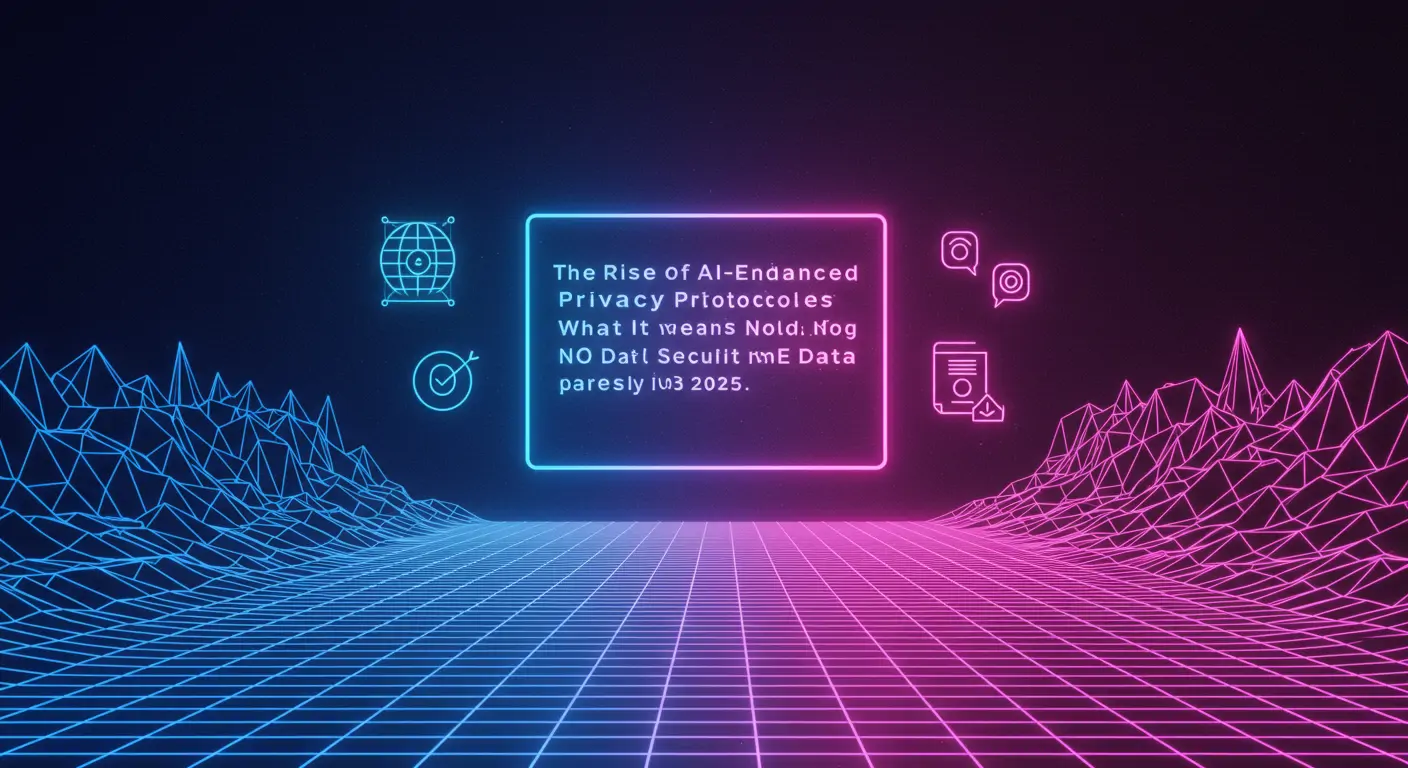Introduction: Why This Matters Now
In 2025, the integration of AI-enhanced privacy protocols is reshaping how industries handle data security. A recent Gartner report highlighted that 78% of enterprises plan to integrate AI in their data protection strategies by the end of this year, signifying a pivotal shift in cybersecurity paradigms. This trend heralds transformative changes across industries, affecting every stakeholder from developers to investors. Read time: 10 minutes.
The Current State: What's Happening Right Now
Over the past year, technological advancements have accelerated the deployment of AI-enhanced privacy protocols. Companies like OpenAI and IBM are leading innovations with their cutting-edge privacy solutions. As of Q1 2025, the AI-driven cybersecurity market has grown 250% YoY, reaching $14.5 billion (Statista). Traditional security measures are increasingly inadequate in addressing sophisticated cyber threats, necessitating AI interventions.
Key Drivers: What's Fueling This Trend
Driver 1: Increasing Cyber Threat Complexity
Cyber threats are evolving, with sophisticated attacks increasing by 62% in 2024 alone (Cybersecurity Ventures). AI's ability to predict and neutralize these threats is a critical advantage.
Driver 2: Regulatory Demands
Stricter data protection regulations, like the Global Data Protection Regulation (GDPR), are driving businesses to adopt AI-enhanced protocols to ensure compliance.
Real-World Impact & Case Studies
Case Study 1: IBM's Watson
- Implemented AI-powered privacy monitoring in 2024
- Reduced data breach incidents by 45% within six months
- Demonstrated the efficacy of AI in real-time threat detection
Industry Implications
For Developers
- Learn AI-centric security tools
- Expanded job roles
For Businesses
- Strategic adoption of AI for competitive edge
- Enhanced data protection capabilities
For Investors
- Opportunities in AI cybersecurity startups
- Evaluating AI risk factors
Challenges & Criticisms
Despite clear benefits, AI-enhanced privacy protocols face challenges, such as potential biases in AI algorithms and high implementation costs. Skeptics argue the need for robust AI frameworks to mitigate these risks.
Future Outlook: What's Next
In the next 6-12 months, expect a 30% increase in AI-driven security investments. By 2027, AI-enhanced privacy could reduce data breach costs by 60% globally. Organizations must prepare by investing in AI training and infrastructure.
Frequently Asked Questions
How secure are AI-enhanced protocols? They offer advanced threat detection capabilities but require continuous updates.
What industries benefit most? Financial services, healthcare, and retail are primary beneficiaries.
Conclusion: Key Takeaways
- AI is essential in modern data security.
- Industry-wide adoption is increasing rapidly.
- Investors should watch AI cybersecurity startups closely.
- Businesses need strategic AI integration plans.
To learn more, engage with industry experts or attend cybersecurity conferences.




